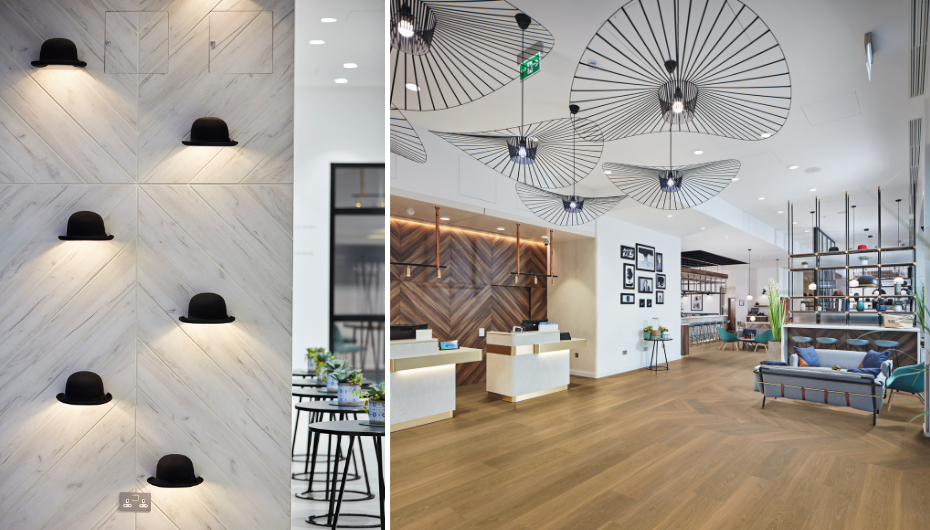This year many of us are still working productively at home and still enjoying this new found flexibility, using a reduced commute to improve our work-life balance. In a post-Covid economy, it is likely that employees will be keen to embrace this flexible working and businesses will look to save costs by decentralising their workplace locations. Despite the success of home working during the pandemic, it will remain important for employees to get together in a physical location to work on projects, to reduce isolation and build personal connections. With employees dividing their working time between home and an ‘office’ location where they can interact and collaborate with colleagues, businesses may look to supplement a smaller head office location with satellite locations in a flexible ‘hub and spoke’ model.
This opens up opportunities for non-office venues to take advantage of a new market. The hospitality industry, currently experiencing lower demand, has been increasingly diversifying over recent years with urban hotels in particular looking to appeal to a wider audience. Conveniently embedded within local communities, these venues are comfortable with a trusted standard of service and high quality facilities that could be quickly adapted to cater for these changing business needs.

Creating a flexible interior is key to maximising appeal for the business sector. This could include informal networking areas in the hotel lobby, co-working zone in the bar and a variety of private business meeting rooms and offices created by converting bedroom suites, supported by high speed internet and video conferencing facilities. Offering flexible bookings, from daily to monthly, a ‘work from hotel’ option could be attractive to businesses of all sizes. Colleagues can get together to work on projects for an intense period of time, staying overnight to maximise the benefit of this collaborative time.
The welcoming interior of hotels, full of local references and with a home from home feel, offers a reassuring atmosphere where people will feel able to concentrate on work but also take time out to relax with colleagues. With facilities on site such as a cafe, restaurant, bar, gym and garden, these working periods would also support employee physical and mental health.
Characterful designs that reflect the history of the building and connect the interior to the local environment are sure to instil a sense of cultural inclusion and provide an important connection to the natural world. Successful designs will balance a luxurious feel with practicality and the reassurance of infection control measures.
Imaginative floor designs offer the opportunity to introduce an authentic look of materials found in the local area and also to support wayfinding and emphasise social distancing. A bespoke style can be created using different laying patterns and a combination of complementary or contrasting designs. By using hotels as office locations, businesses can develop flexible working practices that will increase resilience in a changing economy as well as demonstrate a culture that supports wellbeing, collaboration and engagement and so build a positive brand that will help attract and retain staff.
Explore our flexible formats.



